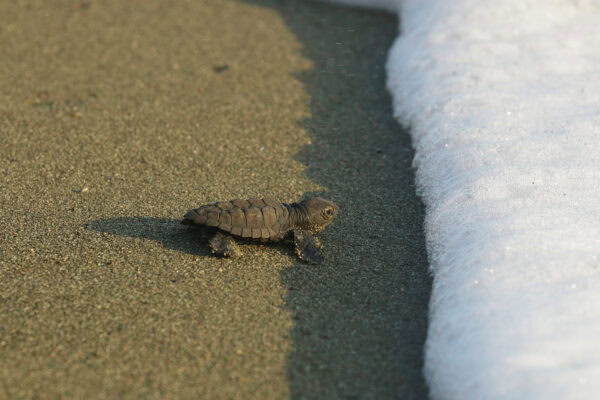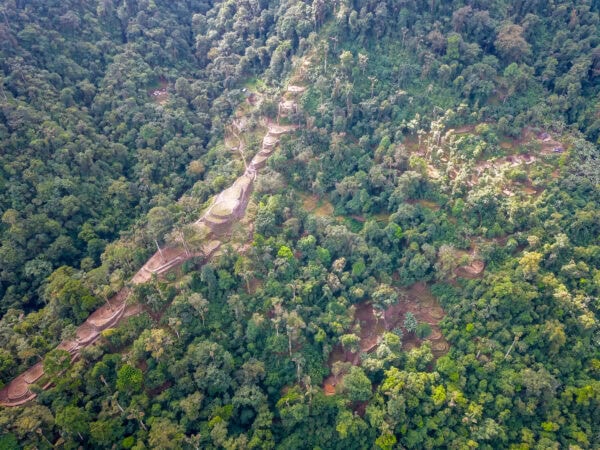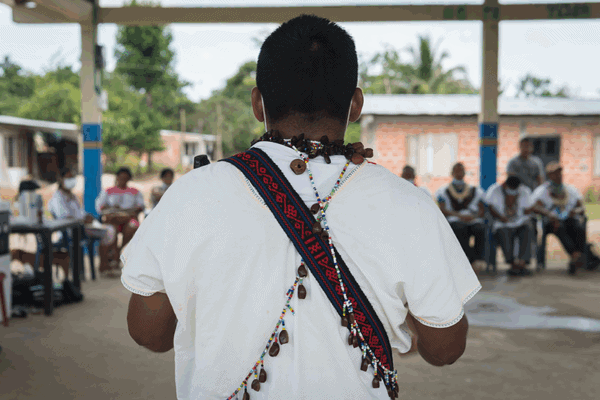Elder Aluakumá recounting the origin story and how he became a shaman.
Working to protect forest and biodiversity, ACT recognizes that, across Amazonia, the natural world is inextricable from the identities and lifeways of the indigenous peoples who live there. The importance of nature to indigenous knowledge and realities makes these people the most suitable to manage and protect their traditionally inhabited lands and forests. So, ACT partners with indigenous groups like the Waurá of Brazil to promote and encourage a practice of conservation that aligns with our partners’ understandings of the world and prioritizes indigenous perspectives. To this end, the wellbeing of the communities with which we partner and the transmission of their knowledge is at the core of our model and practices.
The oral histories project is designed as a tool for our community partners to promote the transmission of indigenous stories, knowledge, and cultural information. In many indigenous societies around the world, oral tradition and storytelling are key practices through which knowledge is passed on to younger generations. Because of the steadily encroaching forces of globalization and modernity, these practices are in many ways disappearing, imposing a high risk of loss of knowledge. This becomes very apparent with the death of indigenous elders, healers, and shamans who take their knowledge to the grave. Over the past few months, many of our partners from the Waurá village of Ulupuene have been forced to confront such loss in the wake of the deaths of several prominent community members.
The Waurá live in federally recognized territory in the Xingu Indigenous Park of the Brazilian Amazon. These past few months have been tumultuous with the loss of the chief of Piyulaga, the largest and principal Waurá village. In the village of Ulupuene, which partners with ACT, two elders and community leaders passed away: the regional “keeper of songs and dances,” Yakuana, who took with him a vast wealth of knowledge about Waurá cultural practices; and most recently, Aluakumá (“Big Bat”), a village elder, shaman, and healer. Both men were revered, and their kin expressed that they had lost more than just a loved one—they had lost an unrecoverable repository of cultural knowledge.
Yakuana was a principle figure in Ulupuene and the region, and was the brother of the chief who founded the village. He led dances and songs at the great ceremonies that bring villagers together from communities across the Xingu. Many of the most important ceremonies held in this region are reserved for the deaths of great leaders and chiefs. After the death of the chief of the principal Waurá village this past summer, a yearlong planning process for his Kwarup ceremony began. Not long after, Yakuana fell ill and passed away. A burning question on some villagers’ minds was “Who will lead the dances?” Some felt that Yakuana was the most knowledgeable dancer and song-keeper in the region, and that no one else could lead these integral rites of the ceremonies.
Some villagers thought that this alarming situation could begin to be addressed by the oral histories project proposed by ACT. Recorded oral histories would offer an archive of the songs and dances that Yakuana’s descendants could study for years to come.
Aluakuma, the oldest man in Ulupuene and a shaman, passed on only a few weeks ago (this essay was written in mid-November, 2017), taking with him untransmitted stories and knowledge. In his everyday activities, he could be found speaking softly to the spirits. Per his personal history, he gained his shamanic ability when he fell ill and the spirit of the bat—Alua—spoke to him for the first time. Just weeks before his passing, ACT filmed him during a trial for the oral histories project where he recounted his path to communication with the spirits, the derivation of his name, and his people’s story of the origin of the world. The attached video, a small clip from this recording, shows the potential of the oral histories project to give indigenous knowledge a technological advantage in the face of influences that undermine traditional oral history practices.
Share this post
Bring awareness to our projects and mission by sharing this post with your friends.





[…] starting to use Terrastories in our work areas in South America with the Matawai in Suriname, the Wauja in Brazil, and the Kogui in Colombia, we have started to share our oral histories methodology at […]